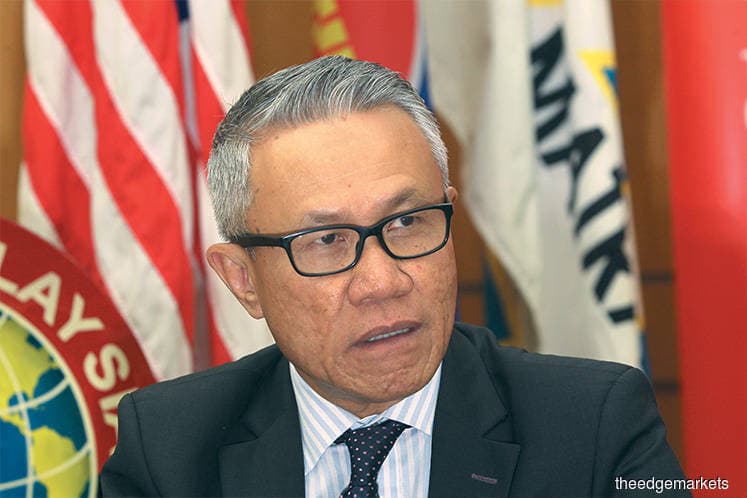
This article first appeared in The Edge Financial Daily on October 29, 2019
KUALA LUMPUR: Malaysia’s small and medium enterprises (SMEs) should start thinking about sustainability or adopting sustainable practices in order to penetrate new export markets, as more developed markets now have such requirements in place.
Malaysia External Trade and Development Corp (Matrade) chief executive officer Datuk Wan Latiff Wan Musa said the trade agency, which is parked under the ministry of international trade and industry (Miti), aims to create more awareness of sustainability among Malaysian SMEs.
While bigger companies are ready to adopt such standards, SMEs are only at the awareness-building phase, he said.
“Of course, being a company, the objective is to make a profit, obviously. What we are saying here is that sustainable businesses are businesses that make profits, and at the same time care for the environment, care for people, and care for future generations,” he told The Edge Financial Daily in a recent interview.
He defined sustainable exports as those that take into account environmental and social concerns, such as those outlined in the United Nations’ (UN) 17 Sustainable Development Goals (SDGs), and cuts across all sectors.
SMEs, he said, have expressed concerns to him during Matrade’s National Export Day last week that the adoption of sustainable practices could lead to higher costs.
The idea at this stage, however, is to start them thinking about the issue and what are the best practices that should be adopted first, he said. “That is why I said they should not be overly worried about this [cost issue], it is about getting people to start thinking and talking about this issue.”
And there are other areas a company can look at if it could not, say, immediately address concerns about its environmental impact due to cost concerns. It could, for example, start looking at how it treats its labour force first, he said.
On the timing of Matrade’s push for sustainable exports, which Wan Latiff said is the first time the agency is making such a push, he said “there is no right or wrong time” to initiate conversations on the issue.
But it is especially timely now, he added, given that Malaysia is a signatory of the UN’s SDGs, and that the government has recently announced its Shared Prosperity Vision. Both these initiatives are targeted for conclusion in 2030.
He also observed that global consumers are now more likely to switch brands due to environmental and sustainability credentials. Consumers, he said, are also willing to boycott brands that are proven to have engaged in environmentally and socially unsustainable and irresponsible business practices.
In order to promote this sustainability agenda among Malaysian SMEs in the export business, Wan Latiff said Matrade has launched its five-year corporate shared values programme called Sustainability Action Values for Exporters (SAVE) on Oct 9.
SAVE’s objective is to influence the adoption of sustainability practices based on UN’s SDGs among Malaysian exporters as a strategy to give them a strategic advantage in export.
To be executed in phases, SAVE this year will focus on capacity building initiatives to address the low awareness on sustainability and responsible business among local exporters, as Matrade believes there is a need for Malaysian exporters to be prepared with the knowledge and information they need so they can make strategic and responsible decisions in their sustainability practices. This stage will also be used to expose Matrade’s staff to more sustainability areas so they can provide the right guidance to Malaysian exporters.
At this juncture, Matrade is not going to make the adoption of sustainable practices or sustainability a criterion when giving out its market and export promotion grants, though it would prioritise SMEs that have adopted sustainable practices, he said.
But three or four years down the road, the agency will look at making sustainability as part of its SME support criteria.
At this juncture, Matrade has no set number of SMEs that it wants to get to adopt sustainable practices under the programme, he said, nor does the agency have any value in mind that it wants to meet for sustainable exports.
But what the agency will do is benchmark Malaysian SMEs in terms of exports against other SMEs in countries like Taiwan, South Korea and Singapore. “SMEs only contributed 18% to Malaysia’s exports in 2018, despite constituting 98% of the entire business community in Malaysia, which is relatively low when compared to the over 30% posted in Korea,” he noted.
While he acknowledged that Malaysian SMEs are facing a tough time under the current economic climate, he said the situation is temporary and Matrade would continue to look for new markets. Matrade will also continue to work with other ministries and agencies to further develop SMEs’ export capabilities across all sectors, he added.